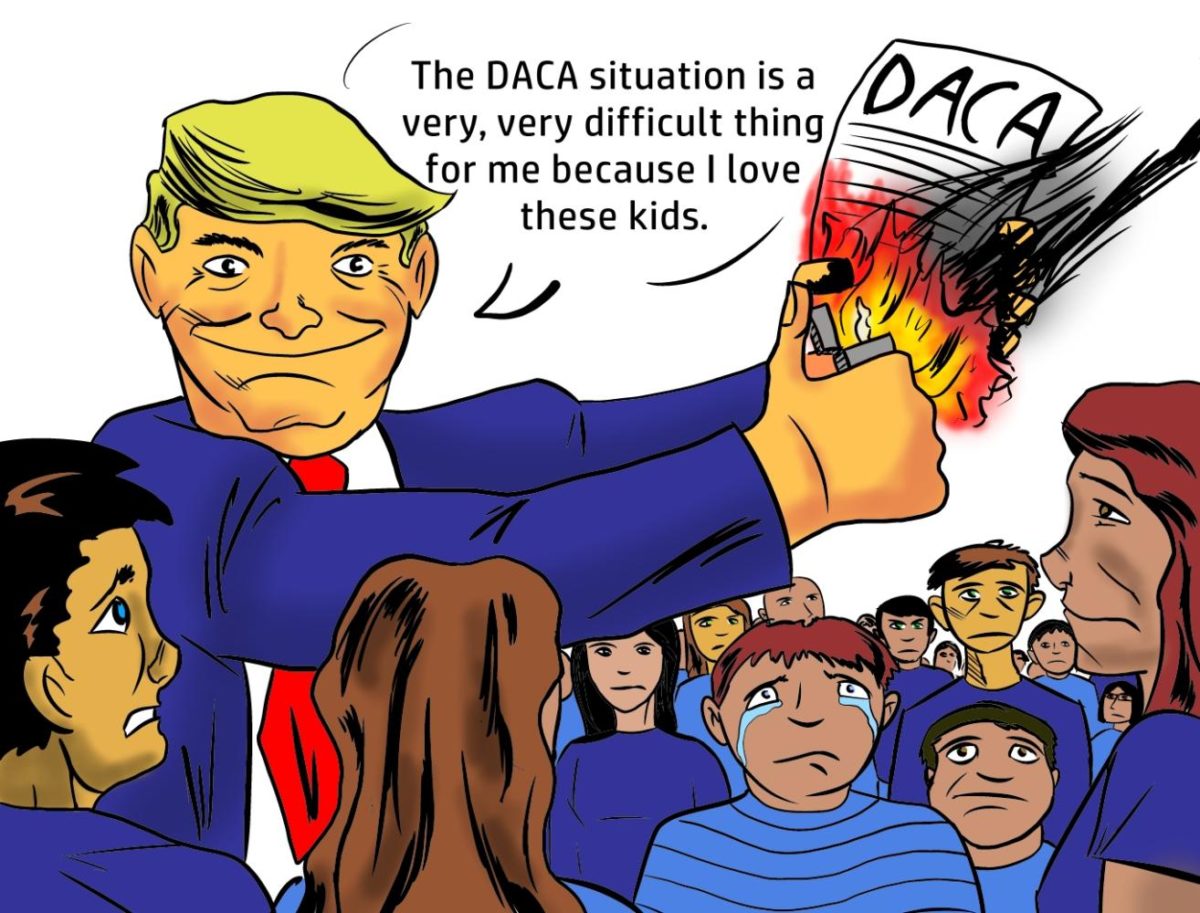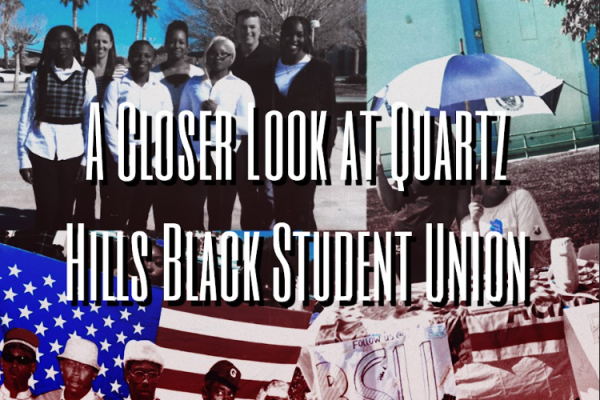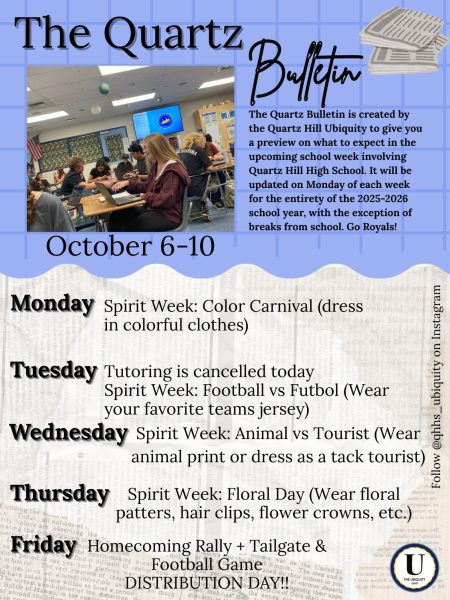The End of DACA Touches QHHS Students
Picture by Cody Wilson
During the tumultuous 2016 presidential elections, candidates large and small promised many things on the campaign trail. One of the promises made by now-president Donald Trump was to end the Deferred Action for Childhood Arrivals program (DACA), which deals with illegal immigration. Now, the president seems ready to make good on his promise and has taken steps in early September towards the possible removal of the program. What many may not realize is the end of DACA could have major effects on students at QHHS.
But, what is DACA, exactly? In 2012, former President Barack Obama issued an executive order to institute DACA. This program protects a group of illegal immigrants known as “Dreamers” from being deported and allows them to gain work permits, driver’s licenses, and education. Dreamers who qualify for the program must have come to the United States before they turned sixteen, have lived here since 2012, and have not been convicted of any misdemeanors. It does not, however, provide US citizenship and must be renewed every two years.
DACA allows thousands of immigrants who were brought illegally as children to remain and function in the country they call home. Senior Elena Salinas, 17, described, “One of my cousins actually came here when he was about two years old and he is studying in a university. Now that DACA might be repealed, he will no longer be able to study at the university he is studying at. … He has to go back to his home country and he’s only lived there for two years of his life.”
She further explained, “He’s only nineteen years old, my cousin, and now he’s being deported back to Mexico … a place he knows nothing about. … I don’t think it’s fair. He was doing everything right.”
Others who are not directly affected have expressed concern over the issue. Sixteen year old Quartz Hill junior Addison Heathcoat stated, “If we made it easier or more efficient … for immigrants to come in and stay in and be a positive impact on our country, then we wouldn’t need things like DACA. We wouldn’t need people to be scared. We wouldn’t need half of the negative things that are happening.”
DACA is certainly a life-changer for illegal immigrants. There are, however, some justified complaints against the program, especially concerning the methods of its creation. The Obama era was marked by a series of executive orders, which are, in essence, laws that a president can pass without being approved by Congress in order to deal with emergencies or to better enforce existing laws and policies. Most citizens agree that this power should be used sparingly, since it potentially allows the presidents to evade the checks and balances essential to American democracy. A president’s job as the head of the executive branch entails enforcing the laws passed by the legislative branch.
When Obama created DACA with an executive order in 2012, he made many citizens upset by blurring the sacred line between law enforcement and law creation. In the eyes of those against it, DACA was not created to better enforce immigration laws; it was created to circumvent the lawful enforcement of legal consequences for undocumented immigrants.
Jordyn Patton, a Quartz Hill junior, gave her thoughts on the matter: “I think that Trump was right calling it into question. … Now, we can take into consideration the impact of ending DACA or improving it.”
The Trump administration recently announced plans to “wind down” the program, giving Congress six months to pass a legislation to keep DACA functioning and to keep the people under it protected. If Congress cannot decide whether to keep, repeal, or replace it, a group of attorney generals have threatened to sue, and the president may take matters into his own hands.
Whatever the case, DACA and its possible repeal have very real effects on students at Quartz Hill High School. Spanish teacher Señora Reyes explained, “I know I have relatives and really close family members and even students that are under the DACA program. And it is very sad because, even though [a repeal] hasn’t passed, it becomes something that comes to light with the immigrant community attending college.”
In this time of uncertainty, the best thing we can do as students is stay informed. Read, research, and ask tough questions about what is going on in our world. Be aware of the points and motives of each side. Support those who are going through hard times, and understand why people have different opinions on the issue. Recognize the real-life consequences of situations and decisions that seem so far removed from our day-to-day world at Quartz Hill.
In the words of Señora Reyes, “Be aware of what two sides there are to any story. Don’t be closed minded. Instead, be open minded and see the other side. Put yourself in others’ shoes.”

My name is Sierra Gutierrez, and I am a staff writer for the Ubiquity. I draw, paint, and play volleyball, but my real passion is writing. I hope to improve...

Je M'appelle Anayis Francis and I am a sleep-aholic. During the time I am not doing my homework, I mainly enjoy watching TV, singing, and listening to...

Hello! My name is Cody Wilson, and I am the fearless Editor-in-Chief of the Ubiquity! Although I originally joined journalism to draw pictures and write...








